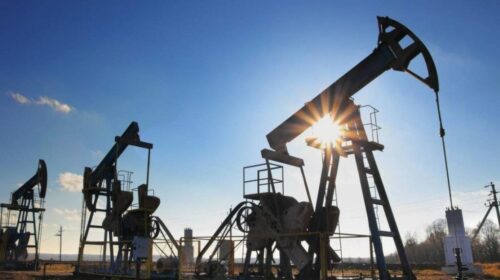Oil rose towards $116 a barrel on Tuesday, adding to a 7% surge the previous day, supported by supply risks from a potential European Union oil embargo on Russia and concern about attacks on Saudi oil facilities.
European Union foreign ministers are split on whether to join the United States in banning Russian oil. Some countries, including Germany, say the bloc is too dependent on Russia’s fossil fuels to withstand such a step.
“It is still not clear whether this will really happen,” wrote Carsten Fritsch of Commerzbank in a report, adding: “a decision of this kind requires unanimity.”
Brent crude rose $0.13, or 0.1%, to $115.75 a barrel by 1326 GMT. US West Texas Intermediate crude added $0.11, or 0.1%, to $112.23. Both contracts had settled up more than 7% on Monday.
Oil was pressured by a stronger US dollar, which gained after comments from US Federal Reserve Chair Jerome Powell on Monday that flagged a more aggressive tightening of monetary policy than previously anticipated.
A strong dollar makes crude more expensive for other currency holders and tends to weigh on risk appetite.
“The word ‘transitory’ regarding inflation is a distant memory, chiefly due to rising commodity prices,” said Tamas Varga of broker PVM. “Central banks, led by the Federal Reserve, stand ready to increase the cost of borrowing significantly.”
Brent hit $139 a barrel, the highest since 2008, earlier this month. Threats to supply from attacks by Yemen’s Iran-aligned Houthi group on Saudi energy and water desalination facilities added support.
Saudi Arabia said on Monday it would not bear responsibility for any global supply shortages after the attacks by the Houthis, in a sign of growing Saudi frustration with Washington’s handling of Yemen and Iran.
In focus later will be the latest round of US inventory data, which analysts expect to show no change in crude oil stocks. The American Petroleum Institute, an industry group, issues its supply report later on Tuesday.





